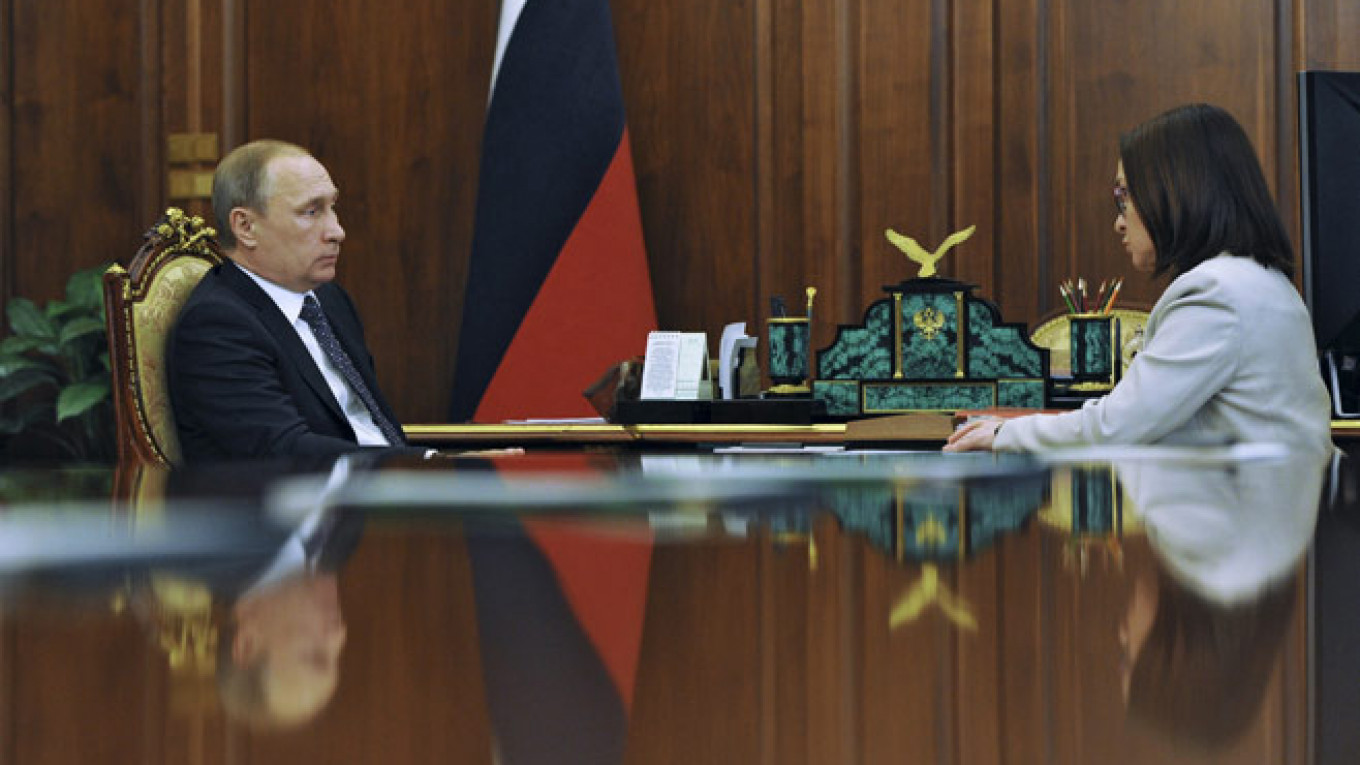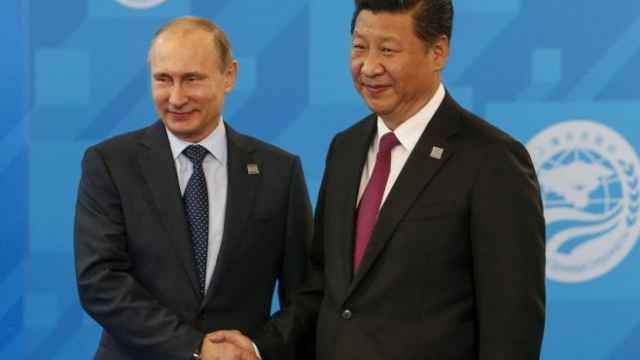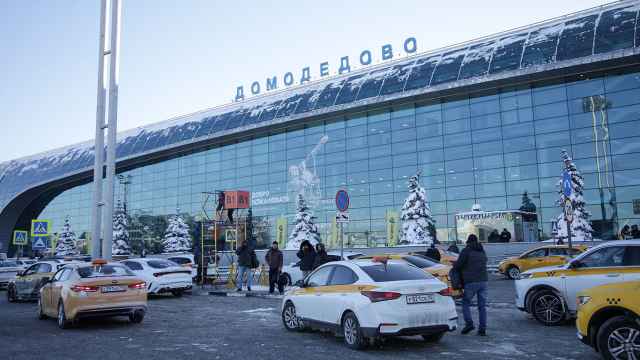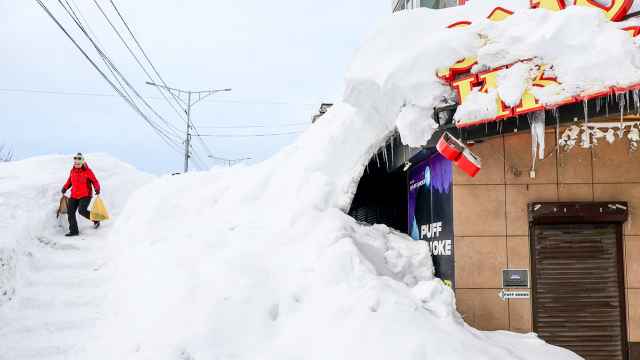The IMF recently stated that, as a result of sanctions, the Russian economy lost between 1 and 1.5 percent of its gross domestic product, but could potentially lose 9 percent of its GDP over the next few years.
As the IMF noted, defining the exact effect of sanctions in isolation is a challenge, particularly given that the drop in the price of oil and collapse of the ruble in 2014 were key factors in Russia's economic downturn; a downturn which began even before the collapse of former Ukrainian President Viktor Yanukovych's government.
However, it is clear that sanctions are having an effect on Russia's economy. But is this the intended effect desired by those imposing them?
Many have commented that sanctions are not having the "intended" effect on Putin, meaning that they are not a big enough threat to force Putin to cease supporting the separatists in eastern Ukraine.
However, this makes assumptions as to what in reality sanctions hoped to, and could, achieve. Western policymakers are not naive enough to think that the threat of sanctions alone would be enough to instantaneously deter Putin from getting more involved in Ukraine, or encourage him to return Crimea. Sanctions are part of a longer-term tool that take time to have serious impact.
This impact is predominantly economic pain and a slow-down in a country's ability to develop. Historically, sanctions have rarely encouraged policymakers within the targeted governments to change their approach and require negotiations with a new government.
Putin quickly and clearly showed that his government was not going to respond by backing down on Ukraine in response to sanctions. Sanctions thus become a waiting game of who will crack under the pressure first.
Defining this "pressure" has been important for the Russian media narrative. The original EU and U.S. sanctions tactic was to target individuals who when pressured, would hopefully pressure Putin.
However, it appears there is not a clear enough understanding of the complete inner workings of Putin's circle's business interests to have a significant impact.
Moreover, the idea that the instruments of these sanctioned individuals' wealth would be publicly identifiable, and be under their full registered control, reflects a lack of awareness of the opaque beneficial ownership structures and proxies used in Russian business.
This has been reflected in the most recent U.S. sanction iteration issued in July 2015. These include entities, some of which are registered in Cyprus, and individuals who are being used to evade the sanctions by providing "material support" to already sanctioned members of Putin's inner circle.
To go further and simply sanction a wider group of Russian oligarchs and prominent business people with ties to the state would be legally difficult and ethically dubious.
The most visible impact for Russia has been from the broader sectoral sanctions on the banking, energy and technology sectors.
It appears to Russia that the actual impact, and thus intent, behind Western-imposed sanctions is to damage the economy as a whole, creating a collective punishment to the population.
Although in reality even these sectoral sanctions were carefully targeted, this has lent itself to the Russian narrative that the West wishes to see Russia collapse and also regime change, so much so that it warranted an updated military doctrine that highlighted "color revolutions" as a priority concern.
Cracks are being seen in the unity of Russian society as economic hardship increases, and Russia's blaming of the West for its economic state may become harder to justify to the nation.
However, the economic collapse of Russia and/or accompanying regime change is not necessarily what Western policymakers were hoping, at least publicly, to achieve in this situation. The lack of any alternative to Putin who would be more willing to engage with the West points to the potential Pandora's box of regime change.
Sanctions were instead pitched as a principled protest against Russia's illegal military intervention into a neighboring sovereign state, delivering non-military punishment for Russia's aggression in a bid to get Putin to back down.
Given the West's relatively low interest in Ukraine prior to the Maidan protests, Russia dismissed this as Western hypocrisy in choosing when to intervene in other jurisdictions. However, it seems the only way sanctions can "work" in this context is to weaken a state that has expressed complete unwillingness to compromise on Ukraine until it is forced to crack.
Part of the difficulty in considering any eventual end to sanctions is that, as the objective of sanctions on Russia is vague, so are the conditions on which they can be lifted.
Fulfillment of the conditions set out in the Minsk II agreement in February is the barometer by which Russia's behavior will be measured.
However, how does one define Russia's involvement in implementing the Minsk agreement, if Russia continues to deny it has anything to do with the issues that the Minsk agreement addresses?
The agreement does not explicitly indicate where Russia, even as a third party, could assist. The subtext is that Russia should withdraw its "volunteers," the equipment it supplied and pressure the rebels into complying. But to prove it has done this, it would have to admit it was involved to this extent in the first place.
Although this vagueness gives some flexibility to the sanctions-imposers, in the short term it has played in Russia's favor for its own narrative. Given that the West has committed to sanctions, it now has no real choice but to keep them in place if it wants them to take real effect.
Sarah Lain is a research fellow at the Royal United Services Institute think tank.
A Message from The Moscow Times:
Dear readers,
We are facing unprecedented challenges. Russia's Prosecutor General's Office has designated The Moscow Times as an "undesirable" organization, criminalizing our work and putting our staff at risk of prosecution. This follows our earlier unjust labeling as a "foreign agent."
These actions are direct attempts to silence independent journalism in Russia. The authorities claim our work "discredits the decisions of the Russian leadership." We see things differently: we strive to provide accurate, unbiased reporting on Russia.
We, the journalists of The Moscow Times, refuse to be silenced. But to continue our work, we need your help.
Your support, no matter how small, makes a world of difference. If you can, please support us monthly starting from just $2. It's quick to set up, and every contribution makes a significant impact.
By supporting The Moscow Times, you're defending open, independent journalism in the face of repression. Thank you for standing with us.
Remind me later.






